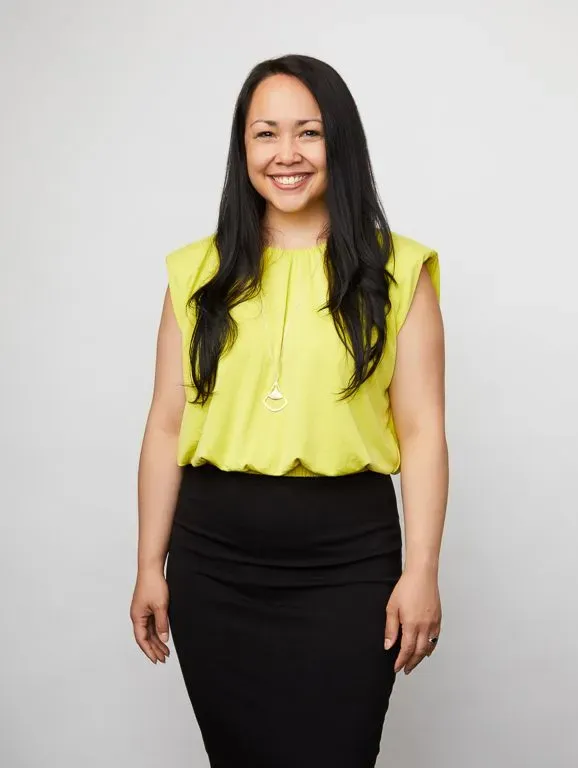
Job Interviews
Learn about the recruiters you’ll work with as you transition from residency to practice, including tips on what to expect and how to best work together.
September 6, 2022
Finding the right first job after your medical residency can feel like a daunting and complex process, but you don’t have to do it alone. Recruiters can help residents navigate each step, helping you land the position that best fits your specialty, personality and career goals.
So, what exactly do recruiters do? What’s it like to work with one? And how can you make the most of this important relationship? We sat down with Sarah Ledbetter and Kyle Travers, two recruitment leaders at Provider Solutions & Development (PS&D), to find out.
You will most like encounter in-house, external agency and Locum Tenens recruiters during your job search. One is not better than another, but they do have access to different types of jobs.

Sarah Ledbetter, Physician Recruitment Manager, PS&D
Can offer deep insight into the jobs available within their health system. They are typically salary-based and have a network of other recruiters who can help you find job opportunities if they can’t. They support your process of applying, interviewing, signing a contract and completing your credentialing.
Have access to a variety of open positions at multiple health systems. Their compensation is often commission-based, meaning they are incentivized based on their ability to get identified candidates hired. These recruiters can connect you to jobs in more than one place and may know about exclusive opportunities.
Represent many 1099 contract (also known as an independent contractor) opportunities across the country, usually with different health systems. They are often paid on margin or by the number of provider days worked.
“An in-house recruiter’s primary goal is to find the best match for the person within the organization,” Sarah says. “They might also regularly recruit for a specific area and have knowledge about the community that they can share.
“An agency recruiter might have multiple jobs at different organizations. They try to gain as much knowledge as possible about the community to help the candidate make a holistic decision. Keep in mind that agency recruiters cover a large area and are supporting multiple organizations, so their depth of knowledge might vary from region to region.”
If a recruiter is listed on the job posting, contact them directly if you wish to learn more about the job or the employer. You can also apply for the job and wait to hear back from the recruiter.
Create a profile for yourself on one of the job sites that accept residents’ and physicians’ information and CVs as a way to pre-screen candidates.
Once you’ve added your CV, recruiters will have access to your information and may choose to reach out to you.
Recruiters visit these sites frequently, so when you find one where you have the option to make a profile, you should. Creating a profile and uploading your CV is an effective way to gain broad visibility. (Learn more about creating a stellar CV.)

Kyle Travers, Supervisor of Recruitment, PS&D
Recruiters function as brokers for the resident and the hiring organization. For in-house recruiters, the first step is typically a phone call during which the recruiter will review the details of the job you’re interested in and ask you about.
You can expect to share:
After that, it’s all about communication.
“A recruiter’s best asset is their ability to communicate clearly and accurately to ensure that you know where everything is in the process,” Kyle says.
If there is mutual interest, you should expect your recruiter to present your application and your CV to the hiring manager and then give you a timeline for each step. Your in-house recruiter will reach out to set you up for a call with the hiring team if they want to move forward.
Because the hiring process usually takes between three and six months, your recruiter should keep you updated on what’s happening, from the initial contact with the hiring manager through the offering and contracting process.
If you haven’t heard from your recruiter within a week or two after your screening, it’s appropriate to send a follow-up email.
Recruiters are also a big help in keeping your job search on track.
“Recruiters are catalysts for movement,” Kyle says. “Hiring managers have a lot on their plate. As a recruiter, it’s our job to continue the momentum of that hiring process.”
Both Sarah and Kyle emphasize that you should reach out with questions at any time because your recruiter is there for you.
“You can even ask questions that you might not want to bring directly to the hiring team,” Sarah says. “Your recruiter can help you decide whether and how to ask for a higher sign-on bonus, or whether to ask about a partial full-time equivalent and anything else you feel uncomfortable asking.”
Here are some tips for building a solid relationship with a recruiter during your transition from residency to practice.
“Our goal is to help people figure out what’s most important to them and find them a perfect match,” Sarah says. The more open you are with your recruiter, the more likely they can find that match.”
A recruiter might tell you about jobs you hadn’t considered. Be open to learning more about those jobs and possibly applying. “Come to us with an attitude of ‘Where can you help me, and where can I fit within your greater health network?’ ” Kyle suggests. “We’re not just one recruiter working with one health system. We have a large network of contacts and jobs.”
Your recruiter is your advocate in the hiring process. Even if you are uninterested in a proposed job, keep the lines of communication open. You never know what opportunities will present themselves in the future, so it's important to maintain a good working relationship.
This relationship may impact your career well after you move from residency to practice. The next time you want a new job, your recruiter can and should be one of the first people you reach out to.
“Working with us means we can form a long-term relationship. We are experts in guiding providers throughout their career progression. We’re here to help you find that next right step, from your first job out of residency to your second and every step after that,” Kyle says.
Recruiters are relationship-builders and connectors, and they’re often the most efficient way to find exactly what you’re looking for. Their goal is the same as yours: helping you find a job that will be the best long-term fit.
Looking for an expert recruiter to assist in your job search? We have those on deck at PS&D. Reach out today to learn how we can help you with every step of the process, from interviewing to negotiations and contracts to ensuring you get a fair offer.